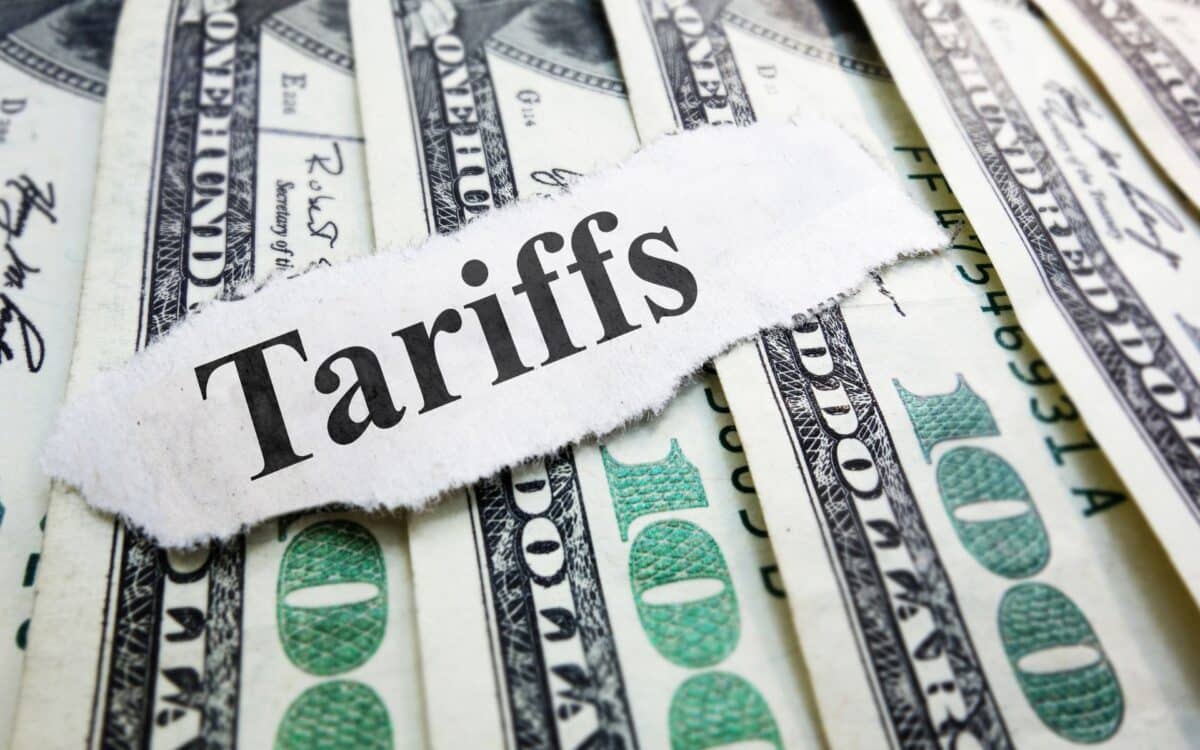The fluctuation of tariffs can have a significant impact on your financial situation, particularly if you’re part of a lower-income group. Even small increases in prices can strain your budget, putting additional pressure on an already tight monthly income.
For individuals who live paycheck to paycheck, such tariff-driven price hikes can be especially burdensome. According to AOL, the impact of these changes on household finances can be felt in numerous ways.
Below, we examine five ways tariffs may affect your budget and explore insights from experts to prepare for the challenges ahead.
Higher Prices on Everyday Goods
In the past, imports were largely associated with luxury items such as fine wine, art, or high-end furniture. But today, nearly every product we buy—no matter how basic—can be imported. This means even everyday necessities, including meat, fresh fruits, vegetables, and processed foods, could be subject to higher tariffs. As Dr. Brandon Parsons, an economist at Pepperdine Graziadio Business School, points out,
Pretty much all goods manufactured today are to varying degrees important—there is, for example, no car made in the US and entirely of U.S.-origin parts – He goes on to explain,
The tariffs that are going to sneak up on lower-income Americans will be the ones on food—meat, fresh fruits and vegetables, and specialty food items.
Additionally, the hidden costs of tariffs are often found in processed foods, like tomato sauce made with Mexican or Canadian tomatoes. For families on a budget, this means that essential items—things they cannot forgo—will now cost significantly more.
Tariff Costs Passed to Consumers
There’s a misconception that businesses might absorb the costs of tariffs, but this is rarely the case. Dr. Parsons clarifies,
As Walmart and a growing number of retailers have made very clear, the cost of tariffs will be passed along to consumers.
This is a crucial point, as it means lower-income households will face an even tougher time purchasing the goods they rely on. Studies show that only 10% of businesses have absorbed the costs of tariffs without passing them on to consumers.
As a result, these increased costs are directly passed to the buyer, affecting purchasing power and squeezing budgets even further.
Struggling to Afford Necessities
Lower-income families often have little to no financial cushion. As prices for essential items rise, they are forced to make difficult choices about what they can afford.
Dr. Wayne Winegarden, a senior fellow of business and economics at the Free Market Pacific Research Institute, explains,
Another reason is lower-income families will often live paycheck to paycheck and have a smaller (potentially no) cushion to absorb these higher costs.
Without the ability to cover the higher costs created by the tariffs, lower-income families will be forced to adjust what they can purchase to a greater extent than their higher-income counterparts.
The problem is compounded by the persistent issue of inflation, which has already affected lower-income households more severely than wealthier ones.
Dr. Winegarden continues,
The tariffs will worsen the current affordability problem and further destabilize the household budgets of lower-income and working families.
With these added costs, it becomes even harder to afford basic necessities.
Potential for Debt Accumulation
For many families, when the budget doesn’t stretch far enough to cover essential items, the next step is often turning to credit or loans. Dr. Parsons explains the danger:
If purchases are for essentials, forgoing them is not an option and debt can result. This can trigger a downward financial spiral, where persistent budget shortfalls lead to rising credit card balances, which in turn eat up more of a household’s limited disposable income.
Since tariffs are regressive—meaning they affect all income groups equally—those with lower incomes end up bearing a heavier burden. As Parsons notes,
Tariffs are regressive, like sales tax, since individuals pay the same price for a product regardless of their income.
This only adds to the financial pressure faced by those in lower-income brackets, who may find themselves trapped in a cycle of mounting debt.
Evictions and Legal Struggles
In the worst-case scenario, the inability to cover basic expenses like food or rent can lead to evictions. Seann Malloy, founder of Malloy Law Offices, warns,
Low-income and working-class families that simply can’t absorb a 15% price hike on imported groceries may be subject to evictions or ruined credit, clogging our courts with cases I frequently litigate.
The financial instability caused by tariffs doesn’t just lead to missed payments; it can also have serious legal consequences, particularly if eviction proceedings follow.
Malloy emphasizes the need for transparent tariff impact assessments and expanding legal protections for vulnerable families.
In such situations, it’s crucial for individuals to make efforts to cut spending, save, and explore ways to increase their income. Taking on a side job or side hustle could help improve their financial situation, providing more security to weather these economic changes.









